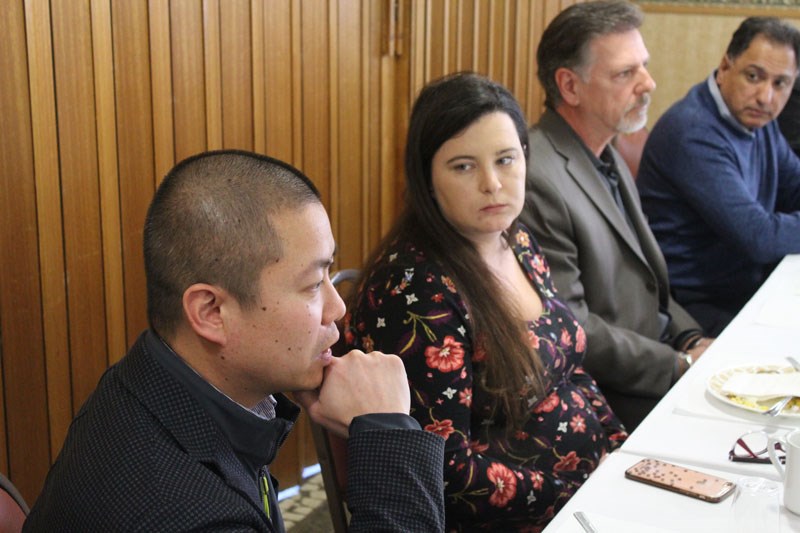The Feb. 21 Thompson Chamber of Commerce meeting featured three guest speakers from different organizations, who were all united under one common goal: to promote more Indigenous engagement in the economy.
Sherman Kong was the first speaker to break the ice, talking about how the Winnipeg-based company he represents, AMIK, aims to increase Indigenous workplace diversity through collaborating with companies like CN Rail, Great West Life and Assiniboine Credit Union.
“What we can offer is the Indigenous engagement piece, so making sure that that gap between communities and industry is properly addressed,” he said.
According to Kong, their services include cultural sensitivity training, Smart Work Ethics training, customized Indigenous recruitment and providing cultural support for the companies they are working with.
Next up was Valerie Moses from Women Building Futures, an organization based out of Edmonton that provides a lot of the same services and training programs, but with a focus on engaging with Indigenous women specifically.
“We go out and we attract women, including Indigenous women, to trades and occupations that they may not see themselves in,” she said. “What WBF stands for is choice, giving women choice to have the skills that are in demand and to choose what career path they want to take with those skills.”
Steve Bulejsza from PCL Construction was the last to speak, and told the Chamber members that this company’s partnership with AMIK and Women Building Futures has given them a great head start on their diversity initiatives.
“We’ve had projects in the past and we’ve tried to promote inclusion and so on. It’s a very difficult process,” he said. “That’s why this partnership is so successful, because [they] can cover all the aspects of what needs to be done to promote a good, healthy work environment.”
While Volker Beckmann of Spirit Way Inc. appreciates the work that these organizations are doing, he pointed out that a lot of small businesses in Thompson don’t have the time or resources to incorporate a lot of these same policies, since employee turnover is constantly high.
“Small business owners are strapped and they’re trying, struggling with the best employees they can get,” he said. “And the work you’re doing, I think, is awesome, but how do you filter that down to small companies who are waking up in the middle of the night wondering how they are going to be doing their payroll next week?”
Leanne Rutherford, a branch manager for Vallen, echoed Beckmann’s concerns, talking about how difficult it is to recruit any quality employees in Thompson, Indigenous or not.
“The job fair that happened a couple weeks ago, out of all the people that came through there, there was one person … that I would even consider interviewing,” she said. “It was such a poor showing and I think that’s such a huge problem in our community.”
Kong insisted that instituting these policies will pay off for their businesses in the long run, since the number of Indigenous people choosing to live in larger urban centres represents the fastest growing segment of the Canadian population.
“Sooner or later [your] colleague is going to be Indigenous, or, more and more, [your] customers are going to be Indigenous, so if you can be proactive through cultural sensitivity training or customized recruitment initiatives and things of that nature, you’re kind of going to be ahead of the curve.”
The next Thompson Chamber of Commerce meeting is taking place March 7 at the Meridian Hotel.



